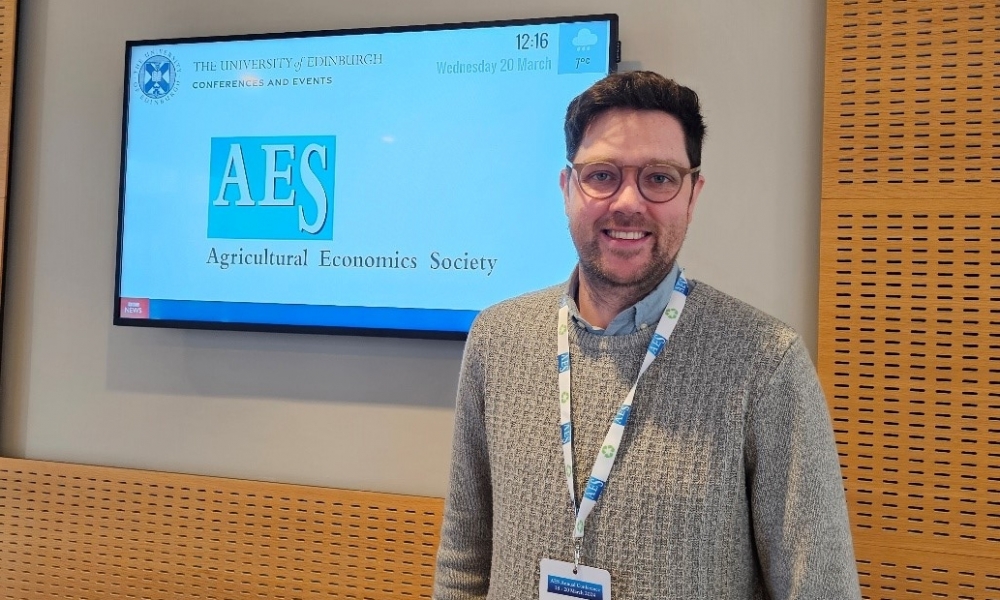Presenting at the Agricultural Economics Society Annual Conference: John Lynch
Associated sprints
recent news
- Growing Positive Change
- The Agile Initiative Enabling Fund
- Pre-announcement: Next Sprint Funding Call to Open in September 2024

John Lynch recently presented ongoing work as part of the sprint “How can we manage uncertainties in habitat greenhouse gas emissions?” at the Agricultural Economics Society (AES) Annual Conference 2024.
This year’s AES conference, now in its 98th iteration, was held at the University of Edinburgh from 18th to 20th March. The conference is well-attended by academics and policy-makers with broad interests in agriculture and land management. This year the environmental focus was stronger than ever, with the keynote lectures and many individual talks focussing on sustainable food systems and land management. There was much discussion on how agricultural and land-use policy can help contribute to climatic and environmental sustainability goals.
John’s presentation also had a climate policy focus, exploring how methane emission reductions in Northern Ireland would be valued under different reporting approaches. Methane is responsible for a larger share of greenhouse gas emissions in Northern Ireland than the rest of the United Kingdom, and there is particular pressure on the agriculture and land sectors to reduce methane emissions. Furthermore, the Climate Change Act (Northern Ireland) notes the distinct characteristics of biogenic methane and suggests a specific reduction target for this gas. While any methane reductions can clearly provide some climate change mitigation, the scale of these benefits, and ultimate reduction requirements, are less clear-cut than for carbon dioxide, due to the different dynamics the two gases show. In his talk, John outlined some of the scientific and policy arguments for putting more or less emphasis on methane emission reductions, and how these might feed into mitigation action in Northern Ireland. He received interesting questions and useful feedback from the audience, which will help in the preparation of an extended paper later in the year.
Read more about the Sprint project: How can we manage uncertainties in habitat greenhouse gas emissions?



